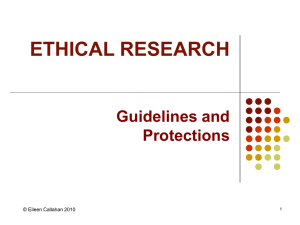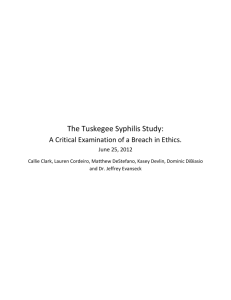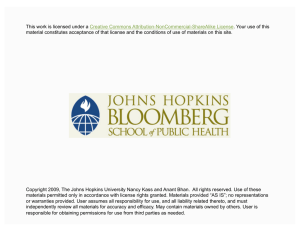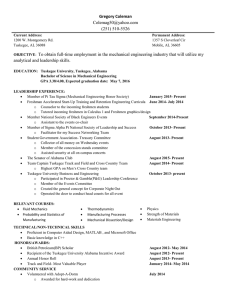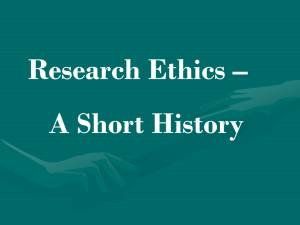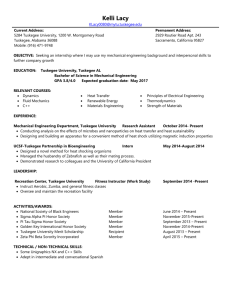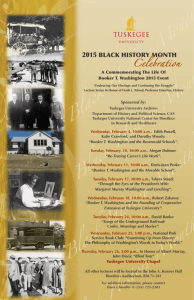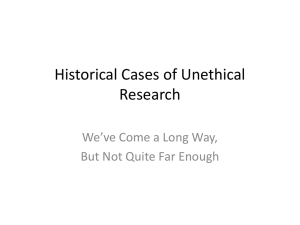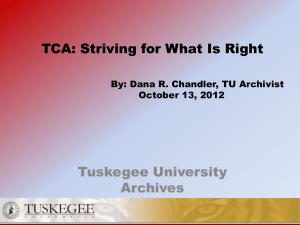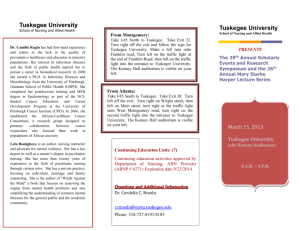References for Wiki - ed504
advertisement
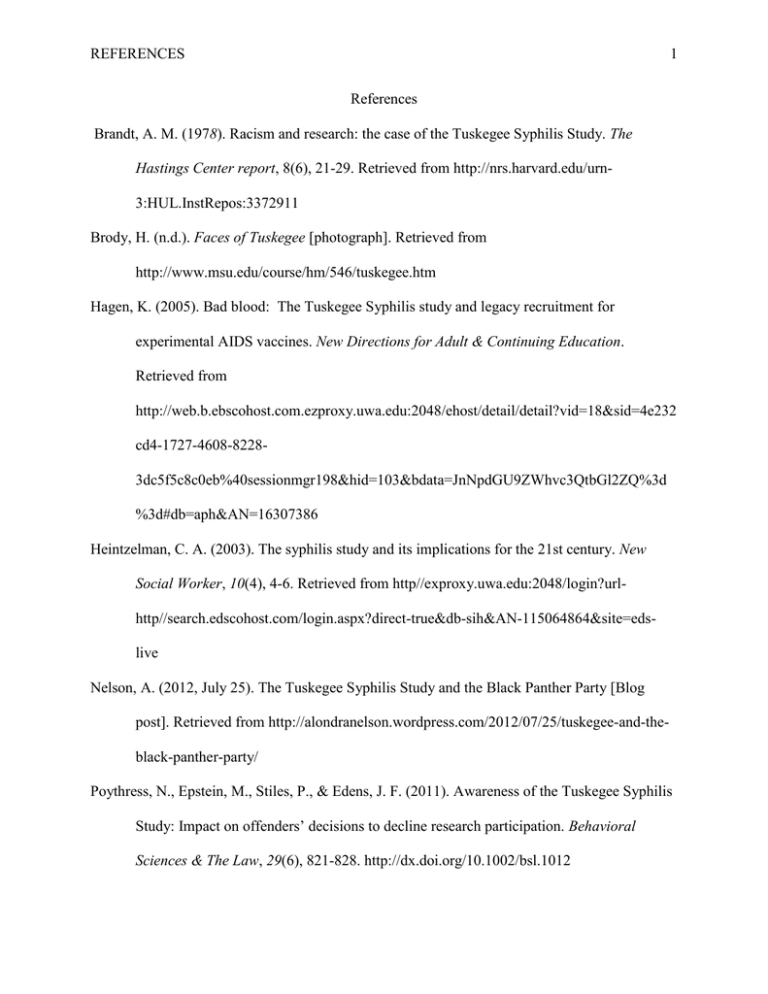
REFERENCES 1 References Brandt, A. M. (1978). Racism and research: the case of the Tuskegee Syphilis Study. The Hastings Center report, 8(6), 21-29. Retrieved from http://nrs.harvard.edu/urn3:HUL.InstRepos:3372911 Brody, H. (n.d.). Faces of Tuskegee [photograph]. Retrieved from http://www.msu.edu/course/hm/546/tuskegee.htm Hagen, K. (2005). Bad blood: The Tuskegee Syphilis study and legacy recruitment for experimental AIDS vaccines. New Directions for Adult & Continuing Education. Retrieved from http://web.b.ebscohost.com.ezproxy.uwa.edu:2048/ehost/detail/detail?vid=18&sid=4e232 cd4-1727-4608-82283dc5f5c8c0eb%40sessionmgr198&hid=103&bdata=JnNpdGU9ZWhvc3QtbGl2ZQ%3d %3d#db=aph&AN=16307386 Heintzelman, C. A. (2003). The syphilis study and its implications for the 21st century. New Social Worker, 10(4), 4-6. Retrieved from http//exproxy.uwa.edu:2048/login?urlhttp//search.edscohost.com/login.aspx?direct-true&db-sih&AN-115064864&site=edslive Nelson, A. (2012, July 25). The Tuskegee Syphilis Study and the Black Panther Party [Blog post]. Retrieved from http://alondranelson.wordpress.com/2012/07/25/tuskegee-and-theblack-panther-party/ Poythress, N., Epstein, M., Stiles, P., & Edens, J. F. (2011). Awareness of the Tuskegee Syphilis Study: Impact on offenders’ decisions to decline research participation. Behavioral Sciences & The Law, 29(6), 821-828. http://dx.doi.org/10.1002/bsl.1012 REFERENCES Warren, R. C., Williams, L. S., & Wilson, W. D. (2012). Addressing the legacy of the U.S. public health service syphilis study at Tuskegee: Optimal health in health care reform philosophy. Ethics & Behavior, 22(6), 498-500. http://dx.doi.org/10.1080/10508422.730000 2
